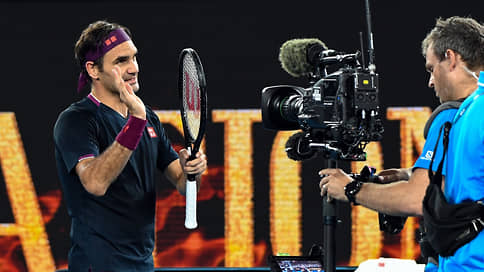Court of History
[ad_1]

Former world number one, 20-time Grand Slam winner Roger Federer is leaving the sport. His last competition will be the Laver Cup, a match between Europe and the rest of the world, which will be held next week in London. Hopes that the 41-year-old Swiss will be able to recover from a knee injury that has kept him out of action for more than a year have not materialized. However, Federer’s contribution to the history of tennis, and indeed of all professional sports, is already huge.
Roger Federer announced about the end of his career just 12 days after Serena Williams played her last official match, and this is symbolic in its own way. Two tennis colossus, so dissimilar in image and equally greedy for great victories, with their inherent skill and acting brilliance, for two decades played the main roles in a play called professional tennis. And in many ways, these roles, of course, were dramatic.
In the case of Federer, of course, it’s not that the veteran’s twice-operated knee accumulates fluid, which put an end to his last hopes of returning. After all, the Swiss did not immediately become the block that he seemed to be in the middle of the 2000s, when he won almost all tournaments in a row with the exception of Roland Garros – his main competitor Rafael Nadal ruled there.
Experienced fans remember how an insanely talented young man with a bun at the back of his head painfully overcame his complexes, fighting the aces of the previous generation, and in the summer of 2003, after his first triumph at Wimbledon, he could not hold back his tears.
Only after that, the almost impeccable tactical game of the genius of a tennis racket, based on the phenomenal feeling of the ball and perfect technique, was finally reinforced by absolute confidence in one’s own abilities.
And only then, having gone through the trials of youth, Federer became the great champion that will remain in history. It has blossomed. From 2004 to 2007, he won 11 Grand Slam tournaments held on fast surfaces, that is, all but one – the Australian Open in 2005, where he lost to the magnificent Marat Safin in a breathtaking semi-final fight.
But even at the peak of the Swiss career, the drama of his life has not gone away. In the story-rich 2008 Wimbledon five-set final, which many still consider to be the greatest tennis match of all time, Federer’s resistance broke Nadal, who has finally matured, is a left-hander who, with his endless twisted shots from the back line, painfully beat him four times in the decisive matches of Roland Garros. And at the same time progressing in the sharpest competition with him.
However, the relationship between these two great antipodes is a topic for a separate discussion. Just like, for example, the renaissance of Federer in 2017 and 2018, when he, having perked up and changed his coaching team once again, won his last three major titles. Or his relationship with Novak Djokovic, the famous Serbian cunning and incredibly resilient fighter who, after recovering two match points, defeated the Swiss in his last big final – at Wimbledon 2019. It was also an incredible match.
103 single titles in total, including 20 majors, 310 weeks at number one in the world rankings, over $130 million in prize money.
By none of these indicators, Federer is definitely never destined to be the champion of men’s tennis. He has a triumph at the Davis Cup in 2014 and a victory in the doubles Olympic tournament, which he managed to achieve with Stanislas Wawrinka in 2008, but no Olympic gold in singles, although he was very close to him. Again, some sort of drama.
However, next week in London at the Laver Cup, Federer’s brainchild tournament, there will be no more talk about these numbers, but about the genius of the tennis profession, who raised the bar of excellence to sky-high levels of its leaders. They will see off the father of four children, who has become not only a seasoned champion, but also a real gentleman of the court, who has served as a sports ideal for many years. And there were never enough of them.
[ad_2]
Source link









